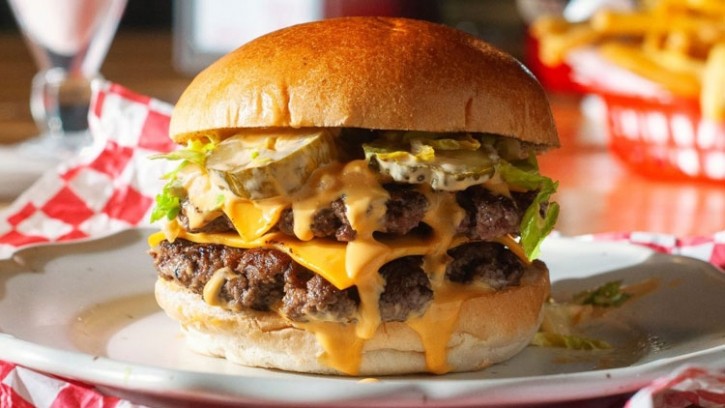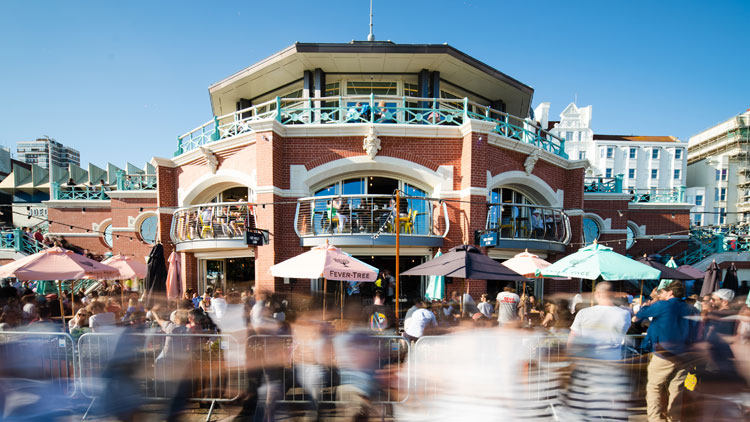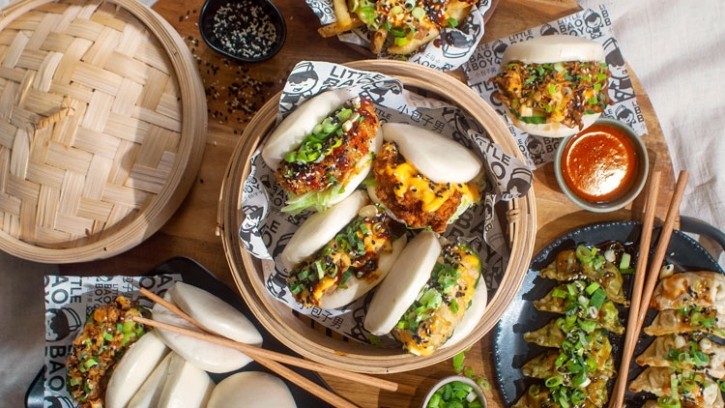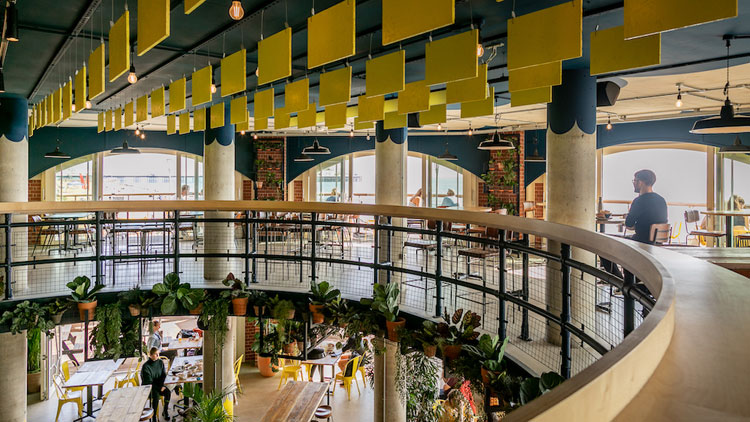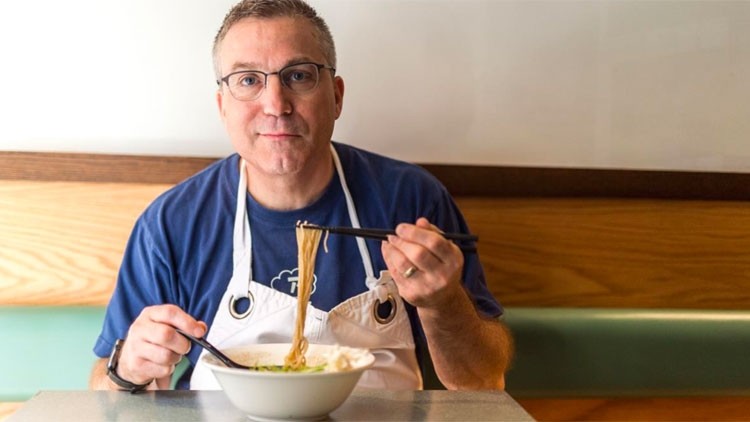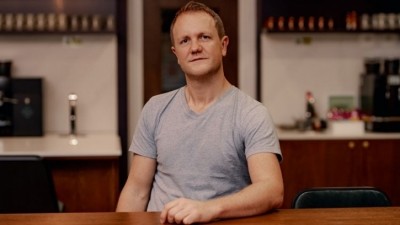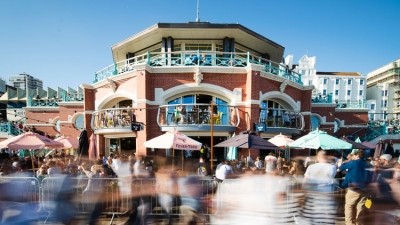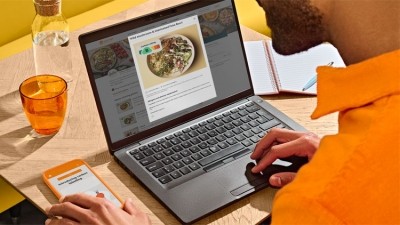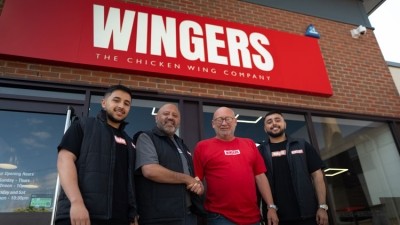Inside the ‘record label for food’
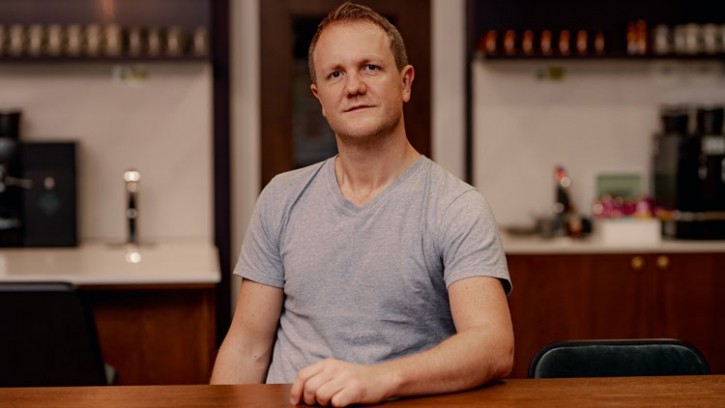
“So, what exactly is it that you do?” That would be a daft question if one were interviewing, say, the boss of a casual dining chain or a high-flying chef but it’s a fair one for Sessions founder Dan Warne.
Launched in 2019, Sessions is a start-up tech business that bills itself as ‘a record label, but for food’. It acts as a solution for operators that want ‘food content’ and as a growth platform for brand founders (it also has a sideline in bricks and mortar, but more on that later).
“It’s a little like outsourcing your music playlist to a third party, only with food. We give you the supply chain, we give you the training and we give you the operating system with which to manage it,” says Warne, who is a well-known figure in the industry having previously been managing director of Deliveroo.
“We are not a hospitality business that is trying to scale physically site-by-site, we are trying to scale by licensing operating models,” he continues. “I believe we are creating a new market. That's hard to do. Who knows whether we will succeed.”
Content is king
The core business at Sessions in terms of both investment and bandwidth is taking food brands and licensing them into third party operators, typically pubs. Sessions likes pubs because they tend not to prioritise food, with Warne describing the sector as "an open door" into the market.
There are now more than 200 sites working with Sessions with around six additional partners being added each week. The business operates across the UK but, at the moment, the majority of its locations are in Southern England.
“Operators may have extra capacity in their kitchens. Or perhaps they want to keep up with the latest food trends but don’t have the right team to do that,” Warne explains.
Brands are offered for eat-in, delivery or both with venues able to deliver more than one brand from a single kitchen if the capacity and demand is there. For example, a single site could offer one brand to eat-in and two further ones for delivery-only via the likes of Uber Eats and Just Eat.
That means that Sessions is involved in dark or virtual kitchens - it works with Foodstars, a major player in that space - but it sees itself as sector agnostic. So long as the location, the facilities and the in-venue team are right Sessions will work with any type of business.
“As long as you have got the capacity and the willingness to run a something at the quality we demand then in theory you can take on any brand,” Warne says. “But dark kitchens are becoming more and more of a challenge from a margin perspective. With rapidly rising food costs, staff costs and utilities costs you need to be doing at least £12,000 a week for it to make sense. That’s not easy.”
Sessions works closely with the big three delivery players but would not necessarily put any one of its brands on all platforms with certain delivery services better suited to certain brands. Deliveroo is the most premium, it believes, Uber Eats does well with younger people and Just Eat has a big presence in the North. “Of course, if we worked with platforms on an exclusive basis we could get better deals but we have decided it’s better to pick and choose,” adds Ward. “It allows us to be more fluid.”
Channel hopping
Although some of Sessions’ brands operate in the so-called virtual space, Warne believes that one of his business’ USPs is that its brands are real. They are, or at least have been at one point, a physical restaurant space.
“You need bricks and mortar and founders that have built these brands from the ground up. They need to be authentic and proven to have worked. It also means we’re held to account by the people who created our concepts. They’re going to yell at us if it’s not being delivered properly.”
In total Sessions has around 15 brands that it can ‘plug-in’ at partner sites. The group’s key IP includes the Miami-inspired SoBe Burger, chef Kenny Tutt’s Patty Guy and the Leeds-founded Little BAO Boy. The terms of the deals Sessions has with the creators of its brands varies. In some cases, Sessions will be an investor or even a co-creator as well as holding the franchise rights while for others it will be a more traditional franchising deal. Sessions also works with some bigger, more established brands including MEATliquor and Neat Burger.
Warne has a background in e-comerce but has spent the past decade or so working exclusively with restaurants. Prior to Deliveroo, he held a high-level role at the San Francisco-based TravelZoo where he launched a premium version of Groupon that saw him work with high-quality restaurants to put together special menus that were then offered via the platform. Local Deals grew rapidly - at its peak TravelZoo employed more than 200 salespeople to sign up restaurants.
After about five years, he returned to the UK to join Deliveroo as managing director for UK and Ireland. Warne was the company’s 12th employee, coming onboard as founder Will Shu completed his Series A funding round.
“Will had created an amazing product and proved that it worked. My job was to scale the concept.” And scale it he did. When Warne started Deliveroo was fulfilling around 200 orders a day. When he left five years later it was closer to a million.
Let’s get physical
Sessions’ comparatively much smaller bricks and mortar business functions differently but is highly complementary to its core operation. The business has two physical sites, a large food hall on Brighton seafront and a smaller site on Islington's Upper Street.
Its food hall model has a comparable setup to the likes of Boxpark and Market Halls. In most cases the eight-or-so kitchens that make up Brighton's Shelterhall are run by independent operators that are - typically, at least - in the early stages of establishing their businesses. Current brands include Chick ‘n’ Bun, Very Italian Pizza and Egyptian street food concept Cairovan. As one would hope given Sessions is a tech business at heart, ordering of both food and drink is facilitated by a friction-free app.
Another much larger food hall is in the works in Manchester’s upcoming St. John’s development just past the city’s Spinningfields area. Set to trade near operators including Soho House and Fenix, the as-yet unnamed site is expected to open next year and will have around a dozen traders alongside another experiential element to pull people in that has yet to be decided on.
Launched last year as Sessions Islington, Warne’s London site has seen a lot of change for a business that has only been trading for 12 months. Launched as a ‘mini food hall’ with four different brands trading from a single kitchen, six months’ in it was rebranded to Neighbourhood to host a single rotating food concept.
These included Ivan Orkin’s brothless-ramen concept and Eddie Huang’s BAOHAUS. However, the site has recently reverted to its previous model showcasing four Sessions in-house brands with Warne now describing Neighbourhood as ‘a studio’ in which the business can perfect its brands. In contrast to Sessions’ food hall business and licensing business, the on-site team is directly-employed by Sessions.
Mixing up investors
The business has a mix of investors. Imbiba has been a partner from the beginning and it is now also backed by sector-agnostic fund Guinness Asset Management and Brighton-based renewable energy fund Oasthouse Ventures (the involvement of the latter requires Sessions to pay especially close attention to its CSR policies).
“We have an almost-profitable model at the moment, which is unusual for a tech business at our stage,” Warne says.
If Sessions was a pure-play tech business, it would have been a lot more exposed to the ongoing crisis in tech venture funding. Warne says that he "remains interested" in doing more food halls but that it is a harder sell to investors.
"Investors tend to have a type of business they invest in. If you are a tech VC you like something that's super-scalable that does not necessarily have physical assets and big CapEx upfront. If you're a hospitality investor you probably want a rollout play that will generate profit out of every site. We bridge those two things.”
The tech coming down the track
Sessions recently acquired cloud-based POS provider ServedUp. “As a tech business we did consider developing our own, but we were able to make headway quicker by buying one,”Warne says.
The system is now used at Neighbourhood and Shelterhall and also for all food orders at Sessions’ partners. “There’s about £50m in sales going through it at the moment,” he continues. “A big advantage with having our own POS is that it gives us real-time information about what is selling in what areas. Armed with that information, we can program in content according to demographics just like you would a TV channel.”
With one foot in the tech world and one in the food world Warne is well-placed to provide comment on what is coming down the track. He is keeping a close eye on imminent changes that look set to democratise the payments space. “Open banking is finally coming. Before too long we won’t be paying exchange fees. If you can cut them out entirely you’re looking at reclaiming back about 0.5% from every transaction, which is significant.”
He also believes the ability to accept payments via phones rather than PDQ machines is also going to shake things up. “Businesses will no longer need to invest in expensive specialist hardware. It’s live on Android now and coming to iOS soon.”
Kitchen automations and robotics is another area of interest. “What’s exciting about that is that it is accessible now. Delivering food via drones is a potential game-changer but there are a lot of regulations to work out. But you can put robots in the kitchen right now. We have already experimented with camera-based technology in some of our kitchens that can alert us if a dish or order does not look right.”
He is most excited about AI, specifically how the algorithms used by streaming giants like Netflix and Disney+ could be used within his own business to work out what food - or as he would have it content - the public want.
“A predictive way of offering brands to the market would be very powerful indeed,” he muses. “By inputting the data we got back from our activities AI could work out which brands would work best in each location.”
“In hospitality at least, AI is usually talked about as something that can drive efficiencies. That’s all well and good, but its potential to drive demand is far more interesting to me.”
